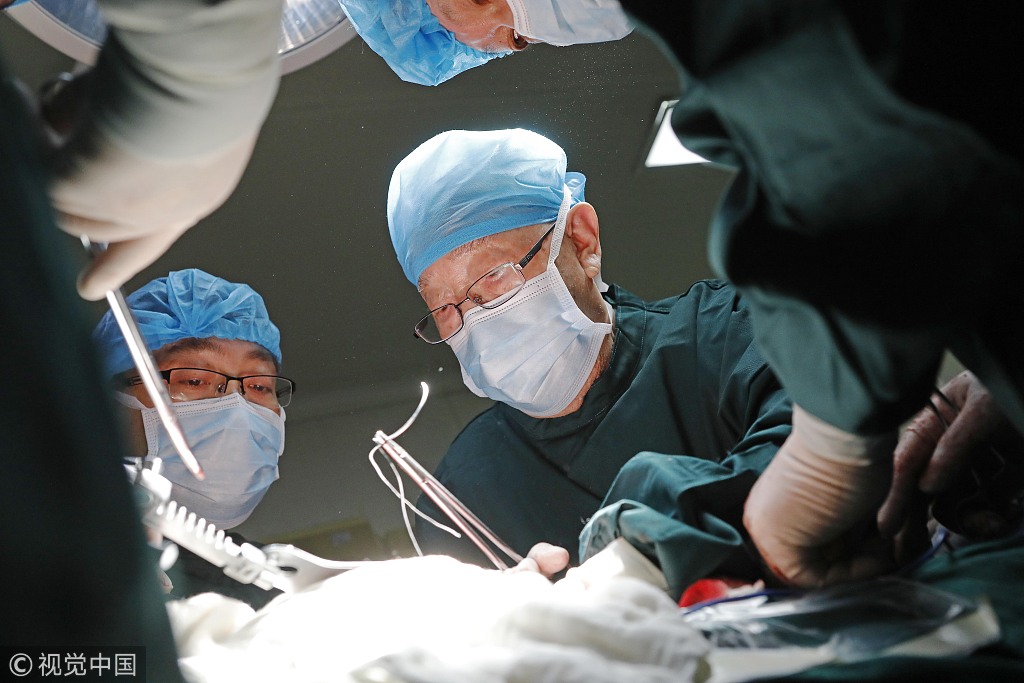
Wu Mengchao conducts a surgery in Xuzhou No.1 People's Hospital in East China's Jiangsu Province on April 13, 2018. (Photo: VCG)
Wu Mengchao, a world-famous Chinese hepatobiliary surgery scientist and surgeon, finally decided to retire at 97.
Dubbed as the father of Chinese hepatobiliary surgery, Wu has done more than 16,000 major operations during his 70 years as a hepatic surgeon, and enabled Chinese diagnostic accuracy, surgical success rate and survival rate after surgery on liver-related diseases in China to the world's leading level.
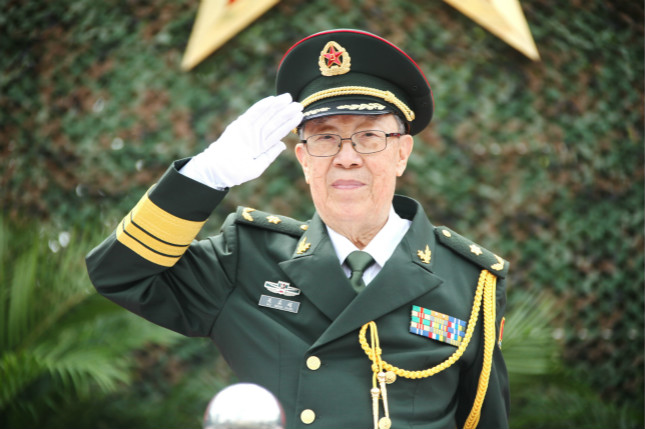
"Returning, studying medicine, and joining the army and Communist Party of China (CPC) are the four right choices I have made that helped me realize my life value," Wu said at his retiring ceremony on January 14, according to Shanghai-based Wenhui Daily.
In 1927, Wu and his mother went to join his father in Malaysia, before returning to China in 1940. In July 1949 he graduated from the School of Medicine of Tongji University. In 1956 he joined the army after he was admitted to the CPC.
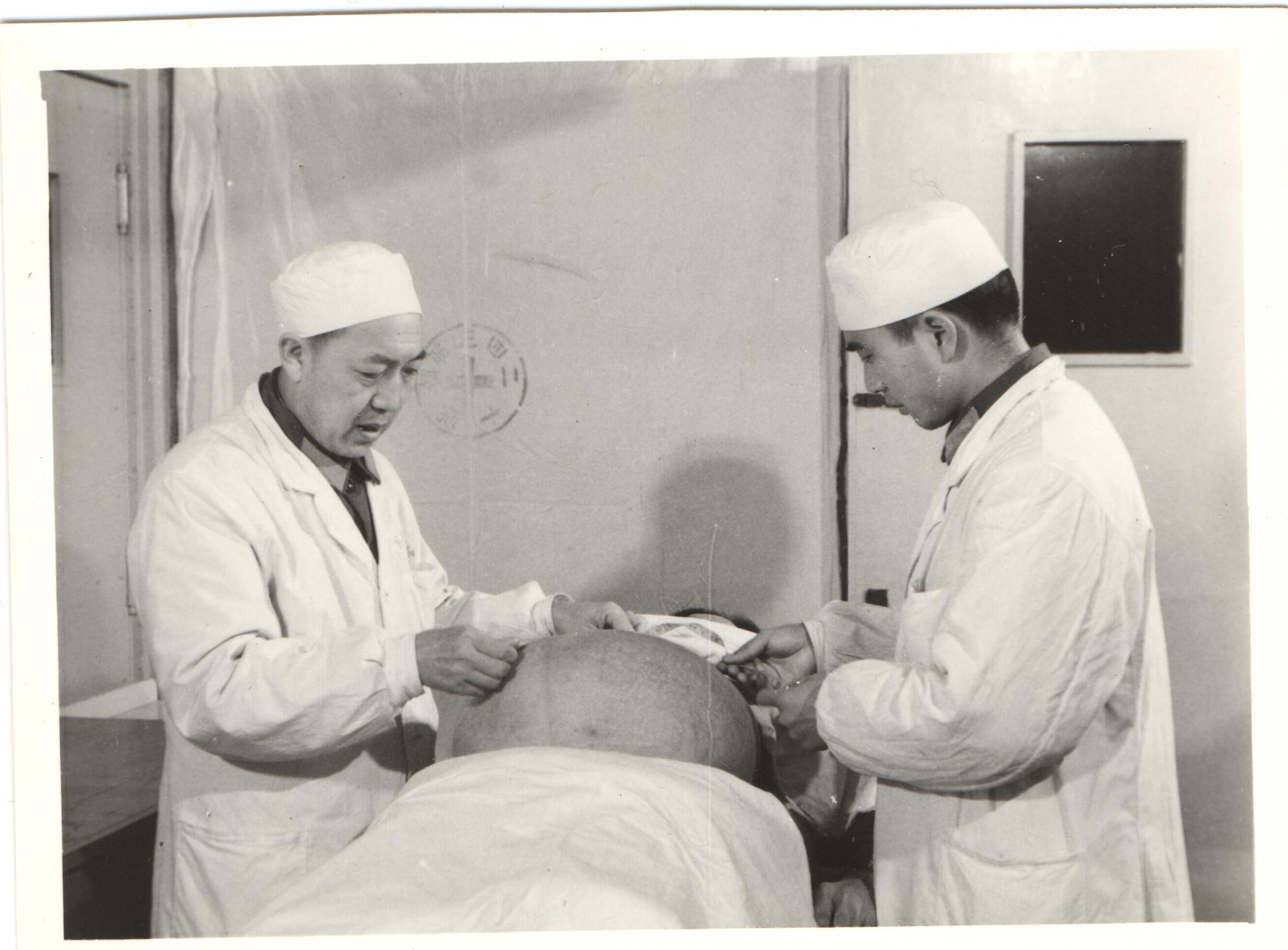
Later, he started to work at Second Military Medical University in Shanghai and dedicated his life to hepatic research, surgical improvements and talent training. Now 80 percent of the experts and surgeons in hepatology in China had been his students.
"A medical scientist should take the needs of the country and the people as a lifelong pursuit," he often said, according to the Wenhui Daily.
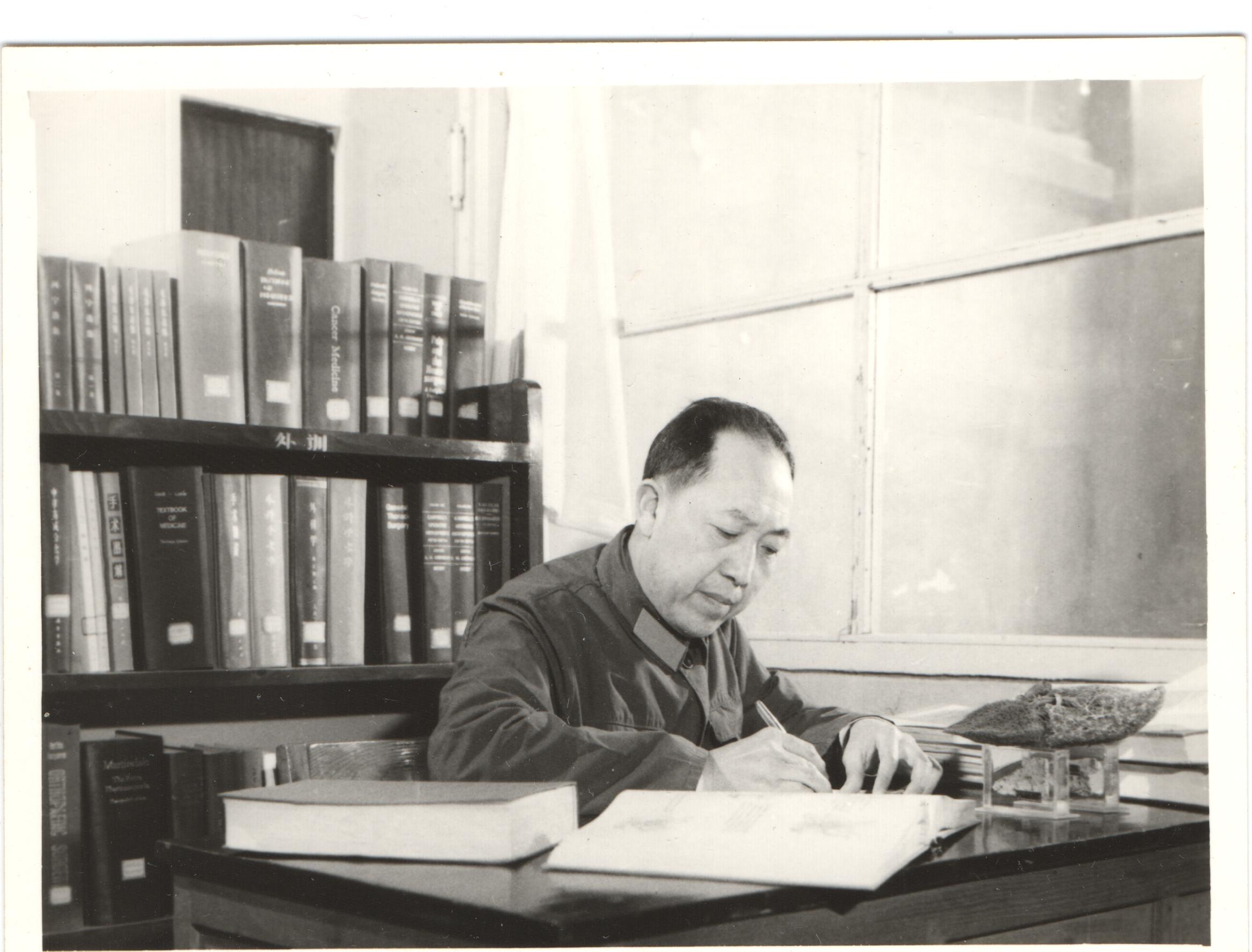
In addition to saving lives, he treated every patient well. In order to save medical expenses for the patients, he always insisted on stitching wound with a needle and thread, instead of using an automatic sewing machine.
Thanks to his contributions and professional ethics, he was elected as an academician of the Chinese Academy of Sciences in 1991, and awarded the "Leading Medical Expert" honor by the Central Military Commission in 1996.
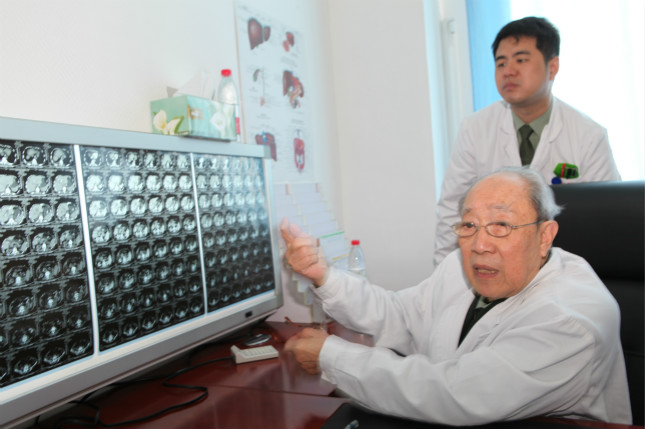
In 2006, he was presented the National Science and Technology Award. But he donated the 6 million yuan ($887,000) award to talent cultivation and rewards.
In 2010, the International Minor Planet Center named the No. 17606 asteroid after his name.
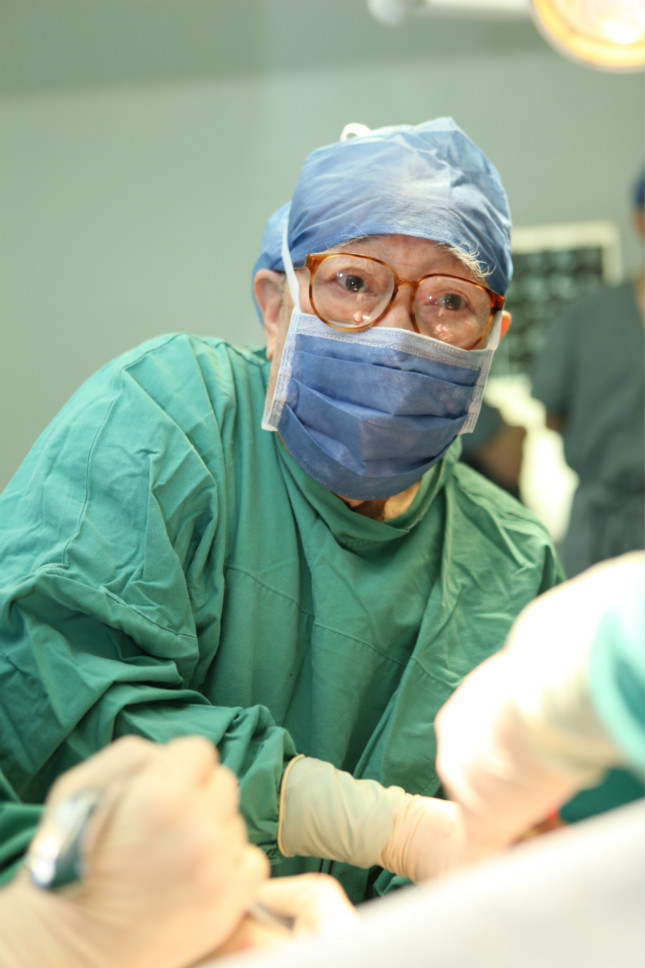
Serving as the president of the Eastern Hepatobiliary Surgery Hospital attached to the Second Military Medical University in Shanghai, he kept doing surgeries. Even in his 90s, he insisted on doing at least three operations a week.
"What I value is not miracles, but saving lives. Doctors should use their sense of responsibility to help patients overcome difficulties one by one," Wu said.
(Compiled by Huang Jingjing, with the photos from Shanghai-based Wenhui Daily)


